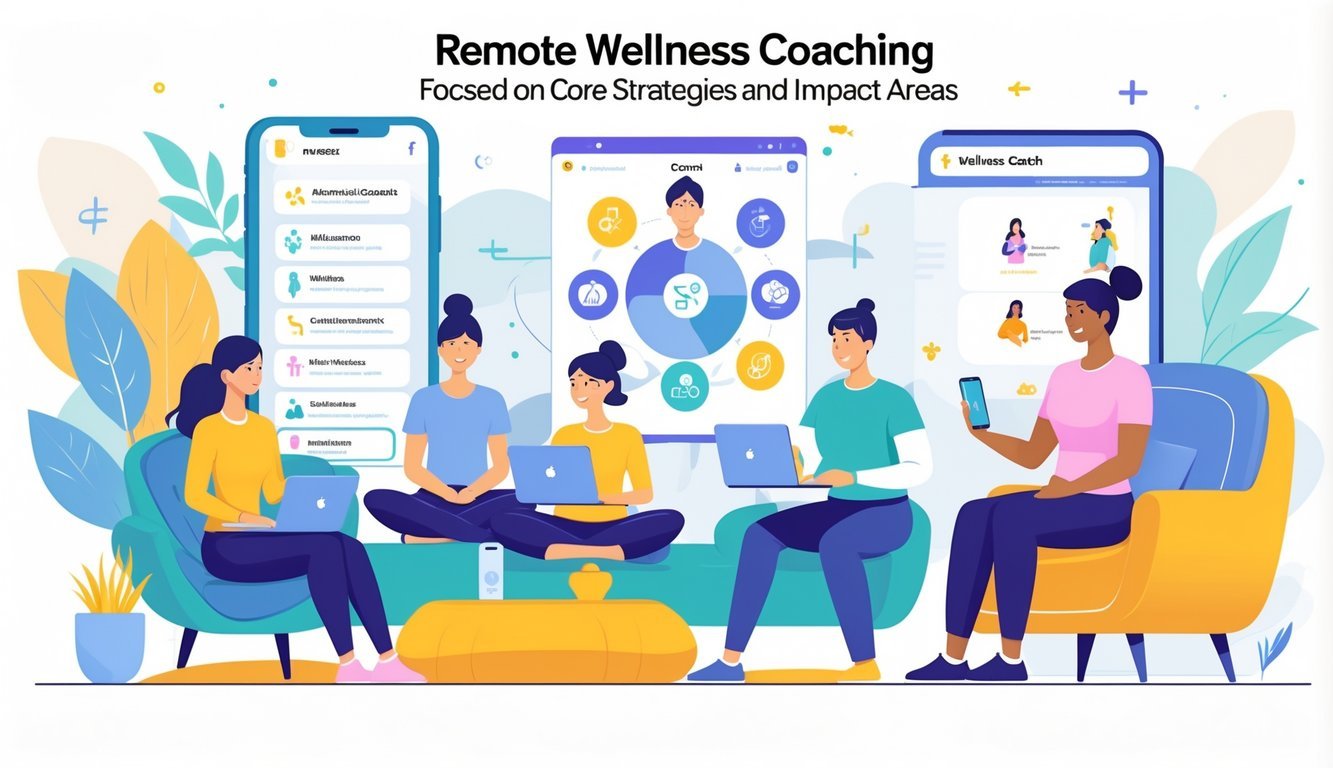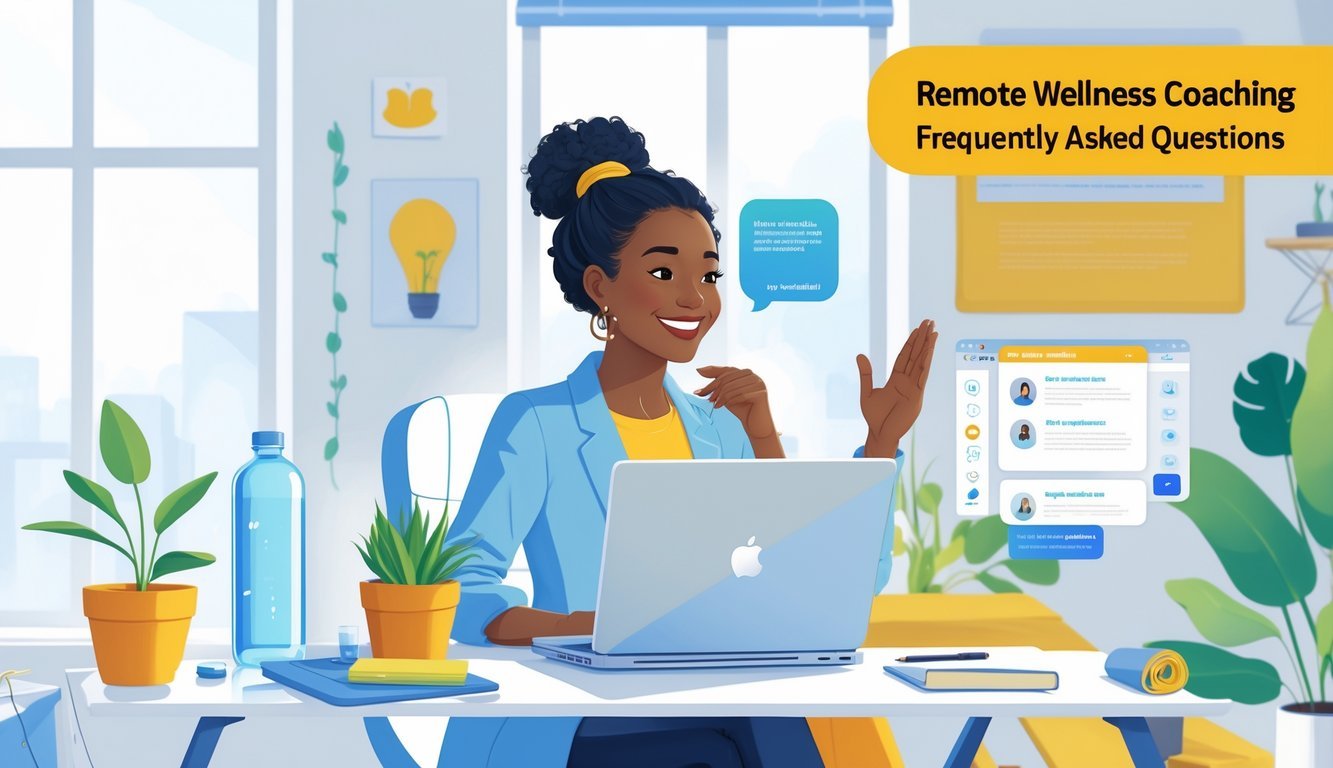PsychNewsDaily Publishers
100 Summit Drive
Burlington, MA, 01803
Telephone: (320) 349-2484
PsychNewsDaily Publishers
100 Summit Drive
Burlington, MA, 01803
Telephone: (320) 349-2484
Remote wellness coaching provides personalized health support through virtual meetings, focusing on nutrition, exercise, and mental wellness, making expert guidance accessible from anywhere.

Remote wellness coaching lets you tap into health and habit support from anywhere, all through online tools. You get personalized support for nutrition, exercise, and mental wellness that fits your schedule and lifestyle. Honestly, it’s growing fast—probably because it makes expert guidance so much easier to access, even if you’re stuck at home or just don’t want to meet in person.
With remote coaching, a professional guides you toward your health goals through virtual meetings, apps, and messages. You stay motivated and accountable without changing your daily routine or traveling to appointments.
That’s why it works well for busy folks or anyone living far from wellness centers.
You’ll see how simple changes in your routine and mindset can boost your well-being. Remote wellness coaches focus on your unique needs and keep you moving forward, step by step.

Remote wellness coaching uses virtual care tech so you can work on your health from anywhere. A health coach guides you in setting realistic goals, building healthy habits, and staying motivated.
Everything happens online, which makes it easy to fit into your routine.
Remote wellness coaching means you work with a certified health coach through video calls, phone, or apps. You never need to meet in person; it’s all digital.
This coaching focuses on your overall health—that’s fitness, nutrition, stress, sleep, the works.
Your coach helps you build a personal plan that fits your lifestyle. They offer advice, track your progress, and tweak your goals as you go.
Many coaches hold NBHWC or ICF certifications, so you know they’ve got real expertise.
A remote wellness coach supports and educates you as you work toward your health goals. They act as your guide, motivator, and accountability partner.
Some coaches specialize and become wellness educators or company coaches for workplace health.
Most coaches have a coaching certification from a recognized program. Bilingual health coaches with Spanish certification support Spanish-speaking clients.
Since coaching is 100% remote, they need to be comfortable with virtual tools and keep in touch with you regularly.
Virtual wellness programs give you flexibility—no commuting, no scheduling headaches. You can connect from home, work, or anywhere with Wi-Fi.
This convenience makes it easier to stick with your program.
These programs often include videos, apps, and messaging for steady support. You get personalized attention without ever needing to visit a clinic or gym.
Remote coaching can even be more affordable, while still giving you expert guidance that’s tailored for you.

Remote wellness coaching leans on clear goal setting, custom health plans, and smooth communication. You get support for specific needs like diabetes or menopause, and you use tools that track your progress securely.
Your care team stays connected, which is honestly pretty reassuring.
Changing habits isn’t easy, but coaching breaks it into smaller, doable steps. You and your coach set SMART goals—that means specific, measurable, achievable, relevant, and time-bound.
This keeps your goals realistic and clear.
Coaches use motivational interviewing, which is basically a friendly conversation about what matters to you. It helps you spot barriers and dig up personal motivation.
Your coach checks in often, giving feedback to keep you on track with wellness goals like better sleep, stress management, or getting more active.
Your coach can tailor plans for things like type 2 diabetes, menopause, or weight management. These plans might include nutrition tips, yoga routines, or stress-reduction techniques that match your lifestyle.
Professionals licensed in healthcare or certified lifestyle coaches often lead this kind of coaching. They work with your care team for a complete support system.
The goal? Empower you to take charge of your health with care that respects your background and needs.
Remote coaching uses tools like phone or chat sessions to fit your schedule. Digital platforms often have documentation software to track your progress and health data, keeping things confidential and HIPAA-compliant.
Coaches update your records and share insights with your healthcare team securely. This way, everyone stays in the loop and can adjust your plan if needed.
They also help you build organizational skills and time management habits, so you can handle changes without too much stress.

Thinking of starting as a wellness coach? You’ll want to know about certifications, daily tasks, pay, and whether you can work part-time.
Licensing rules matter too, so it’s good to check those.
You’ll usually need to finish a training program from a recognized school or organization. These programs cover health, nutrition, and coaching skills.
After training, most coaches get certified by passing an exam.
You help clients by creating health plans and setting goals. You communicate by phone, video, or email.
You track progress, offer advice, and help with lifestyle changes like diet, exercise, and stress.
Salaries depend on experience and location. On average, remote wellness coaches make between $40,000 and $60,000 a year.
Some earn more, especially if they have more clients or a specialty.
Definitely—many remote wellness coaching jobs offer part-time hours. This work can fit around your schedule, so it’s flexible if you’ve got other commitments.
Entry-level coaches usually need a high school diploma or GED plus specialized health coach training. Some employers prefer a college degree in a health field, but it’s not always required.
You don’t need a medical license to become a wellness coach.
Just make sure you steer clear of giving medical advice unless you actually have the right medical credentials.
Most people find that a coaching certification is plenty to get started.